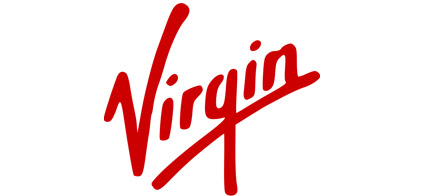 Tip #1: Have Fun With It
Tip #1: Have Fun With It
“I am aware that the idea of business as being fun and creative goes right against the grain of conventions, and it’s certainly not how they teach it at some of those business schools, where business means hard grind and lots of discounted cash flows and net present values.”
Branson is a creative visionary who cares less about money than he does about creating great products, services, and organizations. Ironically, it because of this mentality that he ends satisfying customer demand better than his competitors. The amount of time you have on this earth is little more than wrinkle in the lifespan of the planet. You might as well enjoy it!
Tip #2: Build a Great Team Around You. Reward Them and Praise Them.
“A company is simply a group of people…People are no different from flowers. If you water flowers they flourish, if you praise people they flourish.”
Successful people seem to have the uncommon trait of being able to recruit teammates that compliment their weaknesses and add value to their organization. Understanding what incentivizes and motivates teammates is one of the most important skills an entrepreneur can acquire. Although it’s easier said than done, having your partners and employees do the best work of their lives at your company is what distinguishes Richard Branson from Greg McLemore. Who is Greg McLemore? Exactly.
Tip #3: Be on The Consumer’s Side.
“Above all, you want to create something you are proud of. That’s always been my philosophy of business. I can honestly say that I have never gone into any business purely to make money. If that is the sole motive, then I believe you are better off doing nothing.”
Work FOR the consumer. Don’t try to cheat the consumer out of their money or take advantage of them. The system of capitalism is one of the greatest ways to incentivize individuals to add value to other people’s lives. The more value you add to other people’s lives by solving their problems, providing entertainment, and satisfying their wants and needs, the more you will be rewarded with wealth and respect. You must give them what they want before they will give you what you want.
Tip #4: Take Risks!
“Looking to the future, I had no idea whether Virgin Cola would become a global leader in soft drinks or not, but, as with all of our businesses, I keep an open mind…The decision to launch Virgin Cola was founded on three key things: finding the right people, the positive use of the Virgin brand name, and protection of the downside.”
Risk is uncertainty. The only reason that achievements have any value is that they are difficult to obtain. The harder the task, the more valued it is as an achievement. Smart entrepreneurs learn to mitigate risk, but always recognize that uncertainty is a part of the game. Just think of how many people are persuaded to not go down the entrepreneurial path because it is “risky.” Risk is great because it helps cut down on competition.
“My interest in life comes from setting myself huge, apparently unachievable, challendges and trying to rise above them.”
Tip #5: Don’t Fear Failure.
“You never know with these things when you’re trying something new what can happen. This is all experimental.”
Failure seems to have a negative connotation in every society around the world. It appears as though this concept of failure being “bad” is first ingrained into us during our early schooling. We are rewarded when we get the answer right and scolded when we do not. For many people, professional failure is the greatest of all fears.
Ironically, it is small failures that lead to success. Most things in life are trial and error, whether it is getting better at chess or learning how to run a business. True failure is only when you do not learn from your mistakes. Think of failure as a learning process. Think of it as the greatest of all teachers. In school, you are given the lesson first and then hope you don’t make a mistake. In life, you are given the mistake first and then it is up to you to figure out the lesson.
“You don’t learn to walk by following rules. You learn by doing, and by falling over.”
In my opinion, there are two types of entrepreneurs. One cares about delivering a great product or service that truly adds value to the world or revolutionizes an industry. Not only do they want to deliver innovative products or services, they also want to create enduring business around them. They don’t care as much about money as they do about their work and legacy. The other type of entrepreneur spots opportunities where consumer demand is unmet or there is possibility for product improvement. They then create a business around this opportunity. I think they definitely enjoy the game, but care more about money than the first type of entrepreneur. To me, Branson representes the epitome of the former.
This article was written by Salvador Briggman.




